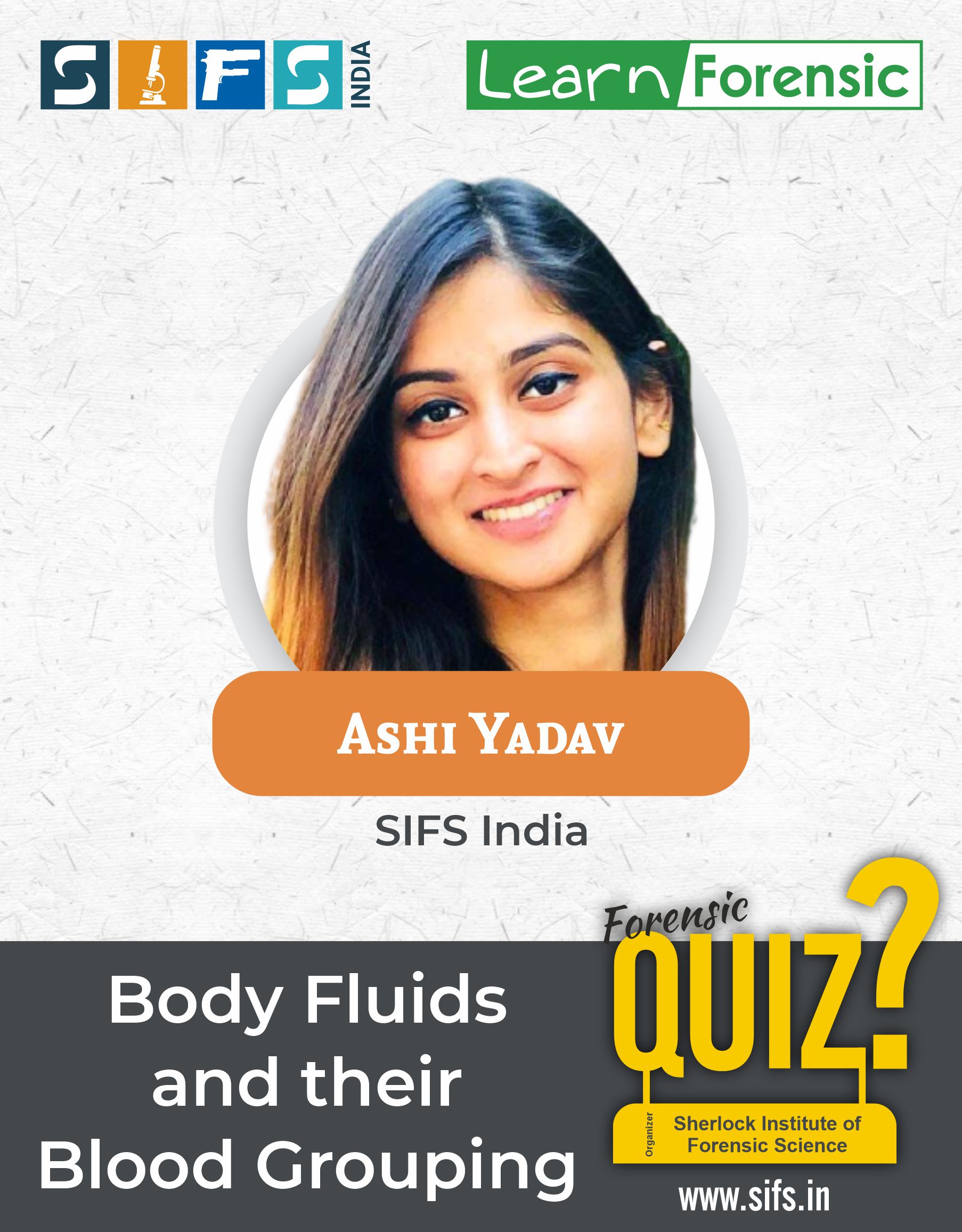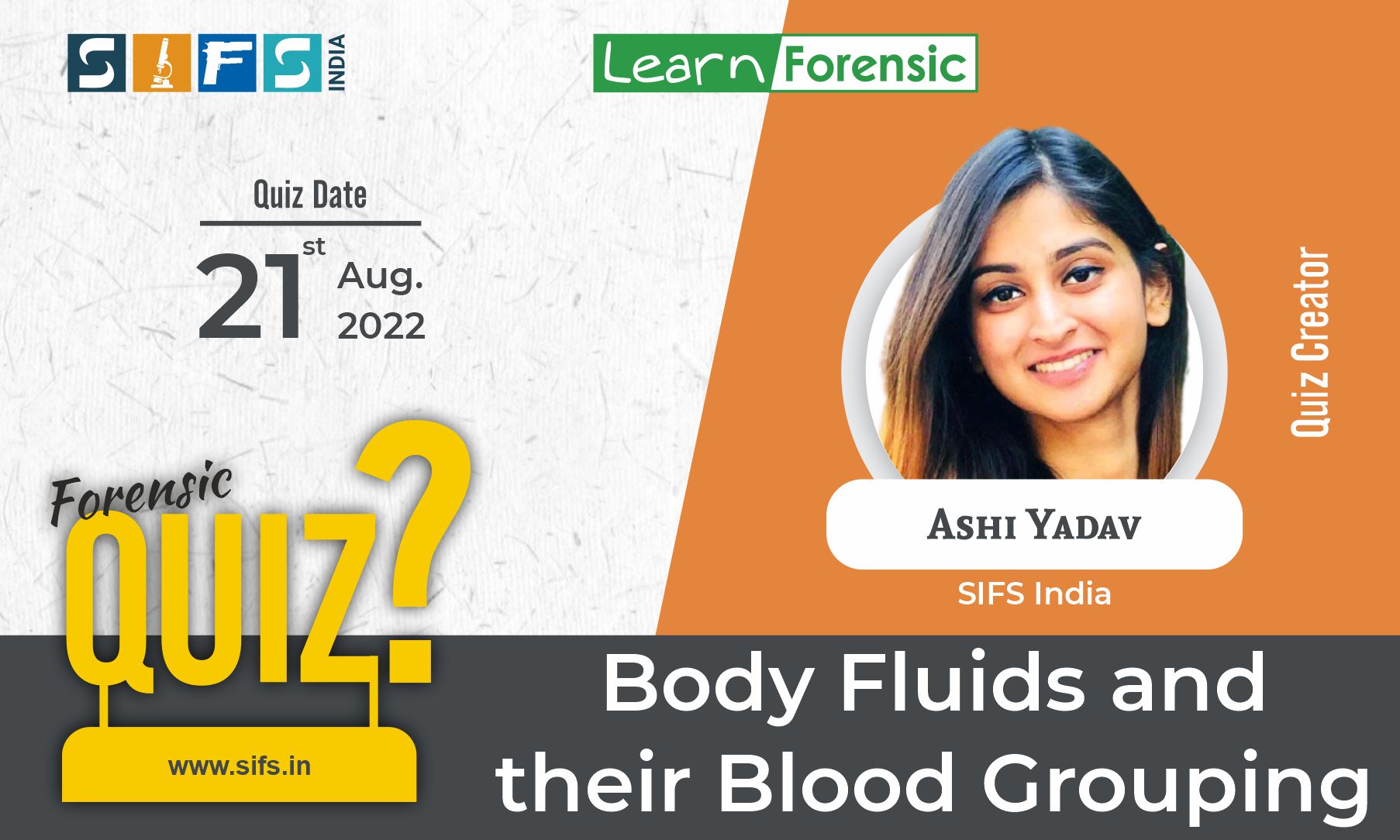Quiz 90: Body Fluids and Blood Grouping
Forensic Quiz
When we talk about ABO blood types, we’re talking about different types of sugars that are stuck to the surface of red blood cells. These sugars are called antigens. Our ABO blood type comes from a stretch of DNA (called the ABO gene) that has the instructions to make these different sugars. Depending on which instructions your DNA has, you’ll make a certain combination of these antigens - this creates your blood type! But here’s a twist: our blood cells aren’t the only cells reading the ABO gene. There are other parts of our body that can make these antigens too!
When red blood cells make antigens, they also need to read a gene called FUT1. Together, ABO and FUT1 make a “sticky” antigen. This antigen attaches to the surface of the red blood cells.
But when other cells make antigens, they read a different gene called FUT2. Together, ABO and FUT2 make a “soluble” antigen. This means the antigens can float around on their own – they don’t need to be stuck to a cell’s surface. This includes the cells in our skin that make sweat, the cells in our mouth that make saliva, and the cells in our airway and digestive system that make mucus.
21
August 2022

PROGRAM GLIMPSE
Here are a few glimpses of our recently conducted event. Have a look!
WHAT ATTENDEES SAY
It’s always a pleasure to pay attention on what our learners and participants says which always motivates us to work for a good cause & thereby reach the heights of excellence!
The quiz was good and mind-provoking, I am excited to see more quizzes. The topics are not only fascinating but also vital in the field of forensic science. Thank you SIFS.
Akpese Wonder
Food and Drugs Authority, Ghana
It was a very wonderful quiz and thanks a lot for hosting such quizzes. Please continue this and keep on organizing webinars related to Forensic Science. Thank you SIFS.
Shailesh Chaubey
Dr APJ Abdul Kalam Institute of Forensic Science & Criminology
